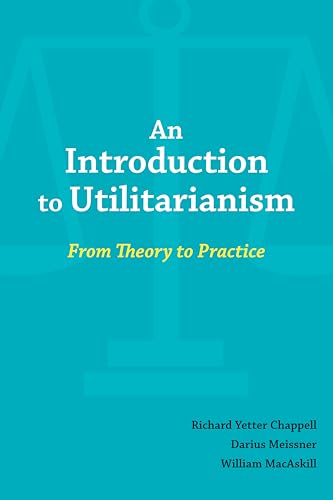
Utilitarianism holds a very distinct place in ethics and in the formation of philosophical whimsy. Today we’ll take a light approach in examining how it is used in our deepest reflections on life, and how it may be one of many tools to examine values.
Understanding Utilitarianism
Utilitarianism is a consequentialist ethical theory that focuses on the outcomes or consequences of actions. According to this theory, the right action is the one that produces the greatest overall good or happiness for the greatest number of people. In other words, the moral worth of an action is determined by its contribution to the overall well-being of individuals affected by the action.
Utilitarianism is often associated with the philosopher Jeremy Bentham, who believed that the principle of utility should guide ethical decision-making. The principle of utility holds that actions are right in proportion as they tend to promote happiness, and wrong as they tend to produce the reverse of happiness.
Recommended reading for Utilitarian Framework (Affiliate links included)
If you want to learn more about the fundamentals and frame work of Utilitarian ethics/shaping, I would largely recommend these books.
They outline some of the most important pieces in the formation and practicality of utilitarianism without being TOO verbose (despite some of the dates some were made… lookin’ at you John Mill (i put in an annotated version incase you wanted a slightly cheaper and succinct read.)
Of course, you can find the PDF’s online or visit a library to rent them for free, but if you would like to own any or all for your bookshelf they are listed above for you to purchase!
It comes at NO additional cost to you, and does support philosophyforme.com to produce more posts that may spark interest or act as resource for your growing world lens!
Examples of Utilitarian Ethics

One classic example of utilitarian ethics is the scenario of sacrificing one person to save a larger group.
This is often referred to as the “Trolley Problem” or “train-track dilemma.”
Imagine a situation where a runaway train is heading towards five people who are tied to the tracks. You have the option to pull a lever and divert the train onto another track where only one person is tied.
From a utilitarian perspective, the right action would be to pull the lever, sacrificing the one person to save the five individuals. This decision is based on the principle of maximizing overall happiness or well-being.
Morally, this is an issue because we are actively choosing to murder an individual.
Even if it’s at the expense of five, we are DIRECTLY choosing this deadly action instead of relying on inaction to make the choice for us.
It’s a great thought experiment that shows that even choosing to NOT do something, is choosing to do something.
Another example could be the allocation of medical resources. In a hospital setting where resources are limited, a utilitarian approach might prioritize treatments that would save the most lives or improve the overall quality of life for the greatest number of patients, even if it means some individuals receive less attention or care.
Utilitarian ethics can also be applied to policy-making and societal issues.
For instance, when considering environmental regulations, a utilitarian perspective would weigh the potential impact on the well-being of the population as a whole, including future generations, and make decisions that maximize overall benefit, even if it means certain industries or individuals experience inconvenience or economic hardship in the short term.
Critiques of Utilitarianism

While utilitarianism provides a straightforward framework for evaluating ethical choices, it is not without its criticisms.
One common critique is that it can lead to the justification of actions that violate individual rights or overlook the interests of minority groups. Critics argue that the focus on maximizing overall happiness may neglect the importance of respecting individual autonomy and rights, leading to potential injustices.
Additionally, the calculation of overall utility or happiness is subjective and can be challenging to quantify. Different individuals may have varying definitions of what constitutes happiness or well-being, and measuring the impact of actions on the overall population can be complex and contentious.
Furthermore, some critics argue that utilitarianism may prioritize short-term gains over long-term sustainability or ethical considerations. The pursuit of maximizing immediate happiness or benefit could lead to decisions that have detrimental effects in the long run, such as environmental degradation or social inequality.
Despite these critiques, utilitarianism remains a prominent ethical theory that continues to spark debates and discussions in the fields of philosophy, ethics, and public policy.
Variations and Refinements of Utilitarianism

In response to these criticisms, philosophers have developed various modifications and refinements to the utilitarian framework.
One such variation is “rule utilitarianism”, which focuses on the consequences of adopting and following general moral rules, rather than the consequences of individual actions.
Under this view, the right action is the one that aligns with the set of rules that, if universally adopted, would lead to the greatest overall good.
Another refinement is preference utilitarianism, which measures the overall good not by the aggregate happiness or well-being, but by the satisfaction of individual preferences. This approach acknowledges that people’s conceptions of well-being and happiness can vary, and that the ethical course of action should be guided by respecting and fulfilling people’s own desires and values.
The ongoing debates and refinements of utilitarianism highlight the complexity and nuance involved in ethical decision-making.
While utilitarianism provides a valuable framework for considering the consequences of our actions, it is important to recognize its limitations and to incorporate other ethical principles and considerations into our moral deliberations.
Utilitarianism in Daily Life

While the examples of utilitarianism discussed so far may seem extreme or disconnected from everyday life, the principles of utilitarianism can actually be applied to many of the decisions we make on a daily basis. From the small choices we make about how to spend our time and resources to the larger ethical dilemmas we face, a utilitarian approach can provide a framework for considering the consequences of our actions.
Even if we ultimately decide to not utilize the option that “maximizes wellbeing” we are still able to use this framework to see a bigger picture than ourselves.
For instance, consider the decision of whether to volunteer at a local soup kitchen or spend that time pursuing a hobby. From a utilitarian perspective, the right choice would be the one that produces the greatest good for the greatest number of people.
Volunteering at a place like a soup kitchen, where you could help feed and support members of the community in need, may be the more beneficial option.
Now, line up with spending that time on a personal hobby.
Even if the hobby brings you more enjoyment, Utilitarianists would argue that it is the wrong choice.
Similarly, utilitarian thinking can guide consumer choices.
When deciding between two similar products, a utilitarian might consider factors like environmental impact, labor practices, and overall societal benefit to determine which option is more beneficial.
This could lead to choosing a more expensive but fair-trade item over a cheaper alternative produced under unethical conditions.
This is actually something a LARGE majority of people do to “feel good” without realizing that they are using utilitarian ethics.
I hope that this small crash course has offered some insight into how utilitarianism is applied on a basic level.
If this has been any part helpful, let me know on Twitter(X) at Philosophyform





